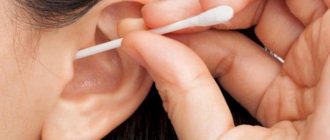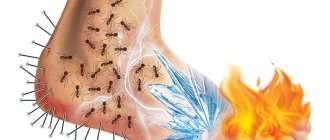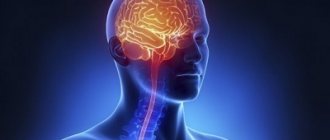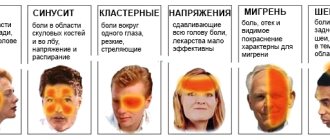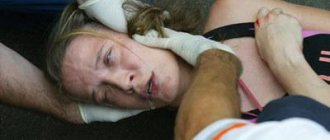Causes
If the noise begins to pulsate and does not go away for several days, you should consult a doctor. Pathology can develop not only in the auditory organ, but also in other vital systems, for example, the brain, cervical spine.
Over time, the symptom may intensify and be accompanied by a gradual deterioration in hearing function. Pathology prevents you from living and working normally, and prevents you from sleeping and concentrating.
You should not endure and wait for the discomfort to go away on its own - you need to contact medical specialists. Especially if the ear feels not only pulsating, but also pain: the more advanced the disease, the more difficult it is to cope with it.
Why there may be a pulsation in the head - possible diseases:
- Glomus tumor.
- Arterial aneurysm.
- Hypertension.
- Vascular stenoses.
- Sensorineural hearing loss.
The noise audible to the patient accompanies all these pathologies. Each of them can lead to dangerous consequences, so they require immediate treatment.
Glomus tumor
Glomanginoma is a benign neoplasm that forms in the area of the internal auditory organ. The tumor consists of cells:
- Hormonal.
- Receptor.
The disease poses a danger to organs located in the vicinity, because with significant magnification it exerts strong pressure. Toxins are released on its surface, which also negatively affect the body.
Three forms of glomanginoma:
- Otiatric – the ear is affected.
- Cranial - spread over the skull area, right or left area.
- Cervical – affects the neck.
Accompanying symptoms:
- A clearly audible tinnitus of a pulsating nature that affects only one ear.
- The pulsation coincides with the patient’s heartbeat frequency - it disappears if the carotid artery is clamped.
- Hearing loss extending to the right or left ear.
- Neglect of the disease leads to bleeding.
Aneurysm
When the disease occurs, it begins to pulsate from the side where it is located on the cervical portion of the carotid artery or directly inside the skull.
The anomaly is a violation of the density and elasticity of the arterial walls. Under the pressure of constantly circulating blood, they expand - a sac is formed, filled with liquid blood and thrombus masses.
At this stage, noise arises that can be heard by strangers. Additional symptoms:
- Constant fatigue.
- My head is spinning.
- Bilateral tinnitus, audible in silence.
- Headache that occurs for no reason.
- Pain in the eyes, neck, shoulders.
- Nosebleeds.
Subsequently, the walls of the artery become fragile, brittle, and thinner. Diagnosis can be difficult, which very often leads to aneurysm rupture and hemorrhage - hemorrhagic stroke.
Diseases of the ENT organs
Pulsation in the ear can occur with diseases of the ENT organs:
- Any part of the ear can become inflamed, as well as the Eustachian tube connecting it to the nasopharynx. Pathological changes in the auditory analyzer distort sound waves and reduce their perception. With otitis, the outflow of serous-purulent exudate is disrupted, an “echo effect” is created, internal noise increases, and blood pulsates. The patient has throbbing in the left ear due to left-sided inflammation of the auditory analyzer. If otosclerosis develops, in which the mobility of the auditory ossicles in the middle ear is impaired, then patients experience decreased hearing, dizziness and tinnitus.
- Labyrinthitis is an inflammation of the inner ear caused by the penetration of infection from chronic foci in the body. The main manifestations of labyrinthitis are vestibular disorders. In patients, coordination of movements is impaired, everything floats before the eyes, ataxia, nystagmus, and autonomic disorders occur: pallor, hyperhidrosis and dizziness. Irritation and death of sound receptors leads to pulsation in the ears, reversible hearing loss and even deafness.
- Hypersecretion of earwax often results in the formation of cerumen plugs, which must be removed promptly. Earwax blocks the ear canals, which causes hearing loss, inflammation and the appearance of pathological pulsation.
Diseases of the heart and blood vessels
Persons suffering from cardiac pathology quite often experience tinnitus, reminiscent of a heartbeat. The pulsation is especially acute when the patient climbs stairs or bends forward. He feels pressure in his head, lack of air, and noise in both ears.
- With hypertension , vascular tone is disrupted, capillaries become overfilled with blood, and systemic blood flow becomes difficult. The sound of blood “friction” through the vessels is perceived by a person as a pulsating noise. “It’s as if the heart is pulsating in the ears” - this is how patients characterize this phenomenon. If a hypertensive crisis develops, the flow of blood into the vessels of the inner ear becomes uneven. This stimulates the nerve endings, which also results in pulsation in the ears.
- Atherosclerotic processes lead to loss of elasticity of the vascular wall, which ceases to contract in the same rhythm as the heart. Such pathological pulsation becomes audible. If the ear is pressed against the pillow, it becomes especially noticeable. Patients with atherosclerosis complain of regular dizziness, noise and pulsation in the head, easy fatigue, poor memory, and hypertension.
- Violation of the structure and functioning of large arteries and veins , their narrowing or stratification changes the speed and direction of blood flow, which hits the walls of blood vessels. Patients claim that their ear throbs, but it does not hurt. Small aneurysms manifest themselves as pulsations in the head. The larger the size of the protrusion, the more pronounced these unpleasant sensations are.
Traumatic injuries
Brain injuries are a dangerous condition that threatens human health and life. With TBI, the blood supply to the auditory organ is disrupted, swelling and other signs of inflammation occur. This leads to dysfunction of auditory cells, disruption of sound transmission and sound perception. The throbbing and pressing headache intensifies when the victim begins to move his head.
If there is a fall or blow to the head, it is necessary to conduct a tomographic examination to rule out a concussion. This is extremely important for patients who experience increased pulsation and loudness of noise, drumming, dyspeptic symptoms, and dizziness. TBI has a severe course and serious consequences. After discharge, patients continue to complain of dizziness, pulsation in the head, and headache for a long time.
Osteochondrosis
Osteochondrosis is a degenerative-dystrophic disease of the spine, in which deformation of the vertebrae develops. Gradually, the distance between them decreases, the nerve roots and blood vessels of the neck are compressed by osteophytes. Blood stops circulating normally, nutrition, innervation of the brain and sensory organs are disrupted.
Immediately after an exacerbation, patients complain of congestion and constant tinnitus, reminiscent of a painless pulsation. It can be sharply expressed or, conversely, practically unnoticeable. In some cases it is tolerable, and in others it is acute, preventing a person from turning his head. Constant pounding in the ear makes patients feel stiff and immobile. Light pulsation causes minor discomfort in patients and does not cause any particular problems. Such symptoms are ignored by patients and remain unnoticed until a certain moment when it is impossible to turn the head. The pulsation may subside in an advantageous position of the head and appear again during active movements.
In addition to tinnitus, patients experience pain in the back of the head and temples, insomnia, ringing, whistling, clicking and crackling in the ears, visual acuity decreases, memory deteriorates, hands become numb, and blood pressure increases.
Why does it shoot in the right ear?
The development of symptoms, when the right ear shoots and hurts, is characteristic of purulent inflammation of the skin in the parotid area. It could be:
- suppurating atheroma;
- regional lymphadenitis;
- abscess of the parotid gland.
These pathologies are characterized by unilateral pain, when it shoots only in the right or left ear. In this case, the inflammation site looks swollen and red, there is an increase in temperature, and the person has difficulty hearing.
When the ear shoots, it can mean:
- inflammatory process in the orbit with involvement of nerve structures;
- spread of infection to the organs of hearing and vision after a runny nose and a cold;
- inflammatory processes of the joint-bone apparatus, affecting the right jaw and the back of the head;
- osteocondritis of the spine;
- neuralgia associated with injuries to the right side of the head;
- intervertebral hernia.
Symptoms and diseases
If your ear begins to pulsate, your head hurts, or noise constantly bothers you, the symptoms indicate a pathological change in the circulatory system.
Dangerous signs that require you to see a doctor
Does the pulsating noise occur very often? - We need a doctor!
The condition when a person has a knocking in the ear, pulsating without pain, can have various causes, some of which pose a direct threat to health and life.
A visit to a doctor should be mandatory if the noise is accompanied by an intensifying or frequently recurring headache, dizziness, fainting, attacks of nausea, double vision, pain in the ears, discharge from them, signs of intoxication of the body, disturbances in perception, hearing, vision and speech, which may indicate the presence of tumors.
A sharp deterioration in health with loss of consciousness may be a sign of a developing stroke or rupture of an aneurysm, and this can be fatal. If tinnitus persists after inflammatory diseases have been treated, they may indicate the development of complications that threaten the quality of hearing.
Get tested
Which doctor should I go to if I experience discomfort? To clarify the diagnosis, it is necessary to consult several specialists (therapist, otolaryngologist, neurologist, surgeon), as well as conduct a number of studies, including:
- otoscopy;
- tympanometry;
- audiometry;
- otoneurological tests;
- tuning fork examination;
- serological and biochemical blood tests to detect infections;
- microscopic examination of a liquid that flows;
- immunological tests;
- bacterial culture of discharge to identify pathogenic microflora and sensitivity to antibiotics.
Only after a thorough diagnosis and determination of the cause of the ailment will the doctor tell you what can be done and how to treat the ear.
Check the outer ear
The test consists of a visual inspection and otoscopy. This is an examination of the ear canal and eardrum using a special tube. Diagnostics allows us to identify external otitis media or boils in the area of the auricle, which cause a lot of discomfort.
Average
Diagnostics involves examining the degree of mobility of the middle ear and eardrum by giving a sound signal. A microbiological study of the released exudate is also carried out.
The study makes it possible to diagnose chronic otitis media due to a constant runny nose, curvature or rupture of the eardrum, and acute infections.
Internal
The most reliable method for examining the inner ear is computed tomography or CT. With its help, you can see any pathological changes and diagnose otosclerosis, sensorineural hearing loss, labyrinthitis, Meniere's disease, etc.
Diagnostics
In order to determine the possible cause of the development of pulsation in the ears, you need to seek help from a specialist:
- Initially, the otolaryngologist begins to figure out the problem of pulsation in the ear, who clarifies the nature of the complaints, the time of their appearance and the conditions against which they arose. It is important for the specialist to know the patient’s history, his early neurological status and the condition of the hearing organ. This will allow you to assess the speed of development of the disease and the severity of the process. Family history is also clarified. This is especially important if close relatives at an early age experienced strokes caused by thrombosis or rupture of cerebral vessels, hereditary variants of cholesterol metabolism or tumor processes.
- The patient is examined. With such clinical manifestations, it is important to assess not only the condition of the hearing organ, determining the patency of the ear canal, excluding the presence of wax plugs, but also the condition of the vestibular apparatus. Impaired coordination may lead the doctor to believe that parts of the brain or middle and inner ear are affected.
- Assessment of neurological status. If there is a suspicion of a pathological process in the nervous system due to pulsation in the ear, the patient requires a consultation with a neurologist with a general assessment of the state of the nervous system.
Why does it jerk on the left?
If older patients complain that the left ear is shooting, this may be due to arthrosis changes in the joints. The disease mainly affects the spine, hip and knee joints. But sometimes the jaw joints are involved in the pathological process, and mainly the left or right side is affected. In older people, damage to the articular-ligamentous apparatus is a fairly common problem, so it is necessary to undergo an examination, and not think about what to put in or how to help so that the ear does not shoot. The doctor will choose the right treatment tactics. If you shoot with pain near your ear, you can suspect:
- inflammatory processes of teeth and gums. In this case, the pain intensifies when touching the affected tooth or touching the inflamed gum;
- trigeminal neuralgia. The pain syndrome usually affects one half of the face. The malaise is paroxysmal in nature, reminiscent of lumbago.
Treatment
Pulsation in the ear is not the main disease, but just a symptom. To get rid of pulsating tinnitus, you need to find out its cause. Treatment of pathologies manifested by pathological pulsation is carried out by otolaryngologists, neurologists, angiosurgeons, and oncologists.
Experts recommend that patients follow these rules:
- Keep your ears clean, remove wax plugs,
- Avoid drinking alcohol and smoking tobacco,
- Massage the neck and head to quickly relieve pulsation in the ear,
- Listen to music without headphones and at low volume,
- Take sedatives and psychotropic drugs if necessary,
- Take long walks in the fresh air
- Eat more fruits and vegetables
- Exercise,
- Carry out neck exercises
- Wear hats in the cold season,
- Normalize blood pressure levels,
- Avoid colds, get treatment on time,
- Always have a good mood.
These general recommendations, together with drug therapy, will alleviate the condition of patients and help prevent the recurrence of pulsation in the ears.
Medications
To relieve pain, and thereby alleviate the patient’s condition, the specialist prescribes non-steroidal anti-inflammatory drugs that relieve swelling, are easily absorbed into the blood, removing congestion in the tissues.
Medicines belonging to this type effectively combat the problem, removing pain and swelling, but they cannot cure the disease. Only comprehensive treatment will help cure the disease and prevent the development of complications.
Among the anti-inflammatory drugs, the most effective and inexpensive are:
- Analgin. This drug can always be found in the home medicine cabinet due to its popularity. But it has a number of disadvantages: it cannot relieve severe pain, it lowers blood pressure and has a detrimental effect on the condition of the gastric mucosa. You can take it up to 3 tablets per day.
- Ketorolac. This is a fairly strong pain reliever that can quickly cope with painful symptoms. But you shouldn’t get carried away with it: for adults the course should not exceed 7 days, and for children no more than 2 days. Take 1 tablet no more than 4 times a day.
For bacterial infections, broad-spectrum antibiotics are recommended:
- Biseptol. This drug effectively stops the growth and development of bacteria. The drug is available in tablets of 120 or 480 mg. Children are recommended 120 mg 2 times a day, and adults 480 mg. The course of treatment is no more than 10 days.
- Amoxicillin. This remedy quickly relieves the inflammatory process, kills microorganisms that cause pain and improves the patient's condition in just two days of taking the drug. Children are recommended 250 mg 3 times a day, and adults 500 mg. The course of treatment is no more than a week.
The article discusses the main reasons why there is shooting in the ear on the left side. Corticosteroid hormones will effectively help stop the inflammation. But they are prescribed only in emergency and complex cases, because these drugs have a lot of undesirable manifestations.
The doctor may prescribe the following medications:
- Dexamethasone. This drug effectively relieves inflammation and is not addictive. In pharmacies, the drug is sold in powder form, which must be diluted with water. By dripping Dexamethasone into the ear, after a quarter of an hour you can notice how the pain has gone away. This medicine is also good because it fights allergies. During an exacerbation, the drug is instilled every 2 hours; in case of a mild form of the disease, it is enough to instill in the ears 2 times a day. The course is selected individually.
- Hydrocortisone. These are excellent anti-inflammatory and antibacterial drops. Drops are instilled up to 4 times a day. The course is individual depending on the severity of the disease.
The ear canal is connected to the nose, so if ear pain occurs, a specialist may prescribe vasodilating nasal drops. They will help reduce the amount of mucus and prevent blockage of the Eustachian tube. The doctor may recommend Nazol drops, which are dripped into the nose three times a day, or Naphthyzin, which is also used three times a day.
Therapy tactics
The choice of treatment for patients who complain of pulsatile noise in the left ear, background noise in the right ear, or bilateral localization of acoustic phenomena should be determined by the primary disease.
It should be remembered that pulsating noise in the ear is only a symptom and not an independent pathology.
Even if the appearance of an intrusive sound is the only symptom, it is necessary to search for the disease that acts as a provocateur. Sometimes you can influence the noise level by compressing the carotid artery on the affected side - this is one of the clinical signs characteristic of the presence of a carotid-cavernous anastomosis in vascular pathology of the brain. However, this is just a symptom that cannot be considered as a way to improve the condition; Only a doctor can apply pressure to the vessel as part of an examination for a limited time.
Thus, the causes and treatment of pulsating tinnitus are concepts inextricably linked with each other. To rid the patient of the “background sound”, it is necessary to find out what causes its appearance. Before using any therapy methods, it is necessary to conduct diagnostics, including both laboratory and instrumental methods.
General restorative therapy
- Drugs that improve microcirculation of cerebral vessels - Vinpocetine, Cerebrolysin, Piracetam,
- Medicines that normalize heart function - “Korglikon”, “Strofanthin”, “Digoxin”,
- Sedatives – “Novopassit”, “Persen”, “Tenoten”,
- Physiotherapeutic procedures - magnetic therapy, ultrasound, solux, UHF heating, microcurrent therapy, intra-ear laser treatment.
How to be treated without medications?
Diet helps improve your overall condition.
- It is usually advised to reduce the amount of fatty foods in the diet, foods that contain cholesterol, and, if possible, give up sweets and spicy seasonings that stimulate the nervous system.
- It is recommended to balance the work and rest regime, spend more time in the fresh air, and engage in physical therapy - a set of exercises is selected taking into account the underlying disease.
- If the occurrence of pulsation in the ear is associated with impaired functionality of the auditory nerve, physiotherapeutic interventions are used: electrophoresis, massage of the tympanic membrane, acoustic massage. In some cases, choosing a hearing aid can help get rid of tinnitus. Surgery may be required.
Effective folk remedies for shooting pain in the ears
In the fight against shooting ear pain, folk remedies are also effective, but they are used only in consultation with a doctor.
So, onions are worthy of antibacterial drugs. Take a small piece of onion, wrap it in a bandage and place it in the ear (the edge of the material should stick out a little so that you can easily remove the “compress”). The procedure is done before going to bed, and in the morning the onions are pulled out. The treatment course lasts 17-20 procedures. Geranium is great for relieving pain. Take a leaf of this home plant, roll it into a tube and carefully insert it into the ear hole. Similar procedures are done three to four times a day, the geranium leaf is kept for 1-1.5 hours. Treatment can last from 2 to 4 weeks.
If there is a lot of pain in the ear, vegetable oil heated to body temperature and mixed with camphor oil can help (take 2-3 drops of oil for 1 tsp of vegetable oil). A gauze swab is dipped in the oil mixture and a compress is made. Keep this lotion for 2-3 hours. The same procedure is recommended before going to bed and keeping the medicine on all night. The treatment course usually lasts from 2 to 3 weeks.
Potential Complications
Ignoring a symptom can cause serious complications and consequences!
If you do not pay attention to noises for a long time and do not identify their true cause, the patient faces numerous complications:
- If there are problems with the organs of hearing, he risks partially or completely losing the ability to hear.
- Aneurysms, angiopathy, and other vascular pathologies and cardiac dysfunction threaten extremely dangerous consequences, including disability or death.
Even noise that is not life-threatening can lead to serious mental disorders. The inability to “isolate” from intrusive sounds leads patients to severe forms of depression, and in exceptional cases, patients try to take their own lives because they cannot tolerate such conditions. Chronic insomnia and constant irritation lead to the same sad consequences, when a person is simply unable to control his negative emotions.
Tumors of various types pose a particular health risk. Only timely seeking medical help can protect the patient from negative influences and save him from both the cause of the disease and its consequences.
What preventative measures will be required?
To protect yourself from such an unpleasant phenomenon as pulsation in the ear, you need to take the following preventive measures:
- Maintain good ear hygiene.
- Use headphones with caution.
- Organize daily walks.
- Protect your ears from infections.
- From autumn to spring, wear a hat and scarf.
- Protect yourself from drafts and hypothermia.
- Give up bad habits.
Following these recommendations will help you maintain your health.
Recommendations
Pulse in the ears, when a patient comes with the complaint: “I hear a pulse in my ear,” can be caused by serious disorders in the body. Such symptoms should not be ignored so that treatment is prescribed in a timely manner.
So, first, visit the lore. He will be able to tell why the ear is pulsating and confirm the presence of a disease that will be subject to his competence. If this specialist does not reveal his signs, then you should visit a neurologist.
To understand why there is a pulsating noise in the ear, it is important to strictly follow all the doctor’s instructions, starting with a whole range of tests. Only after this will it be possible to accurately talk about the diagnosis and prescription of medications.
Overwork
In healthy people, pulsating tinnitus is a sign of overwork, exhaustion of the nervous system and chronic stress. At the end of a busy day spent in a noisy and uncomfortable environment, the ears begin to pulsate. Intrusive noise at night prevents a person from falling asleep, relaxing and resting.
Even basic sounds: the ticking of a clock, raindrops, breathing begin to irritate and seem loud. In this state, the movement of blood through the vessels is perceived as a pulsating noise. Tired people listen to everything, become depressed and begin to invent non-existent illnesses. If drug therapy does not help to cope with the problem, the help of a psychotherapist is necessary.
Forecast
The prognosis for recovery when pulsation appears in the organ of hearing can be both positive and negative.
The first option should be considered only by those who promptly sought medical help and began therapy.
Otherwise, there is a high risk of developing serious complications, which aggravate the person’s condition and force him to take potent drugs that have a negative effect on the body.
If the pulsation is caused by age-related changes in the body, then it is unlikely that it will be possible to cope with it. The doctor will select a therapy that will reduce the discomfort, but it will not completely eliminate it.

